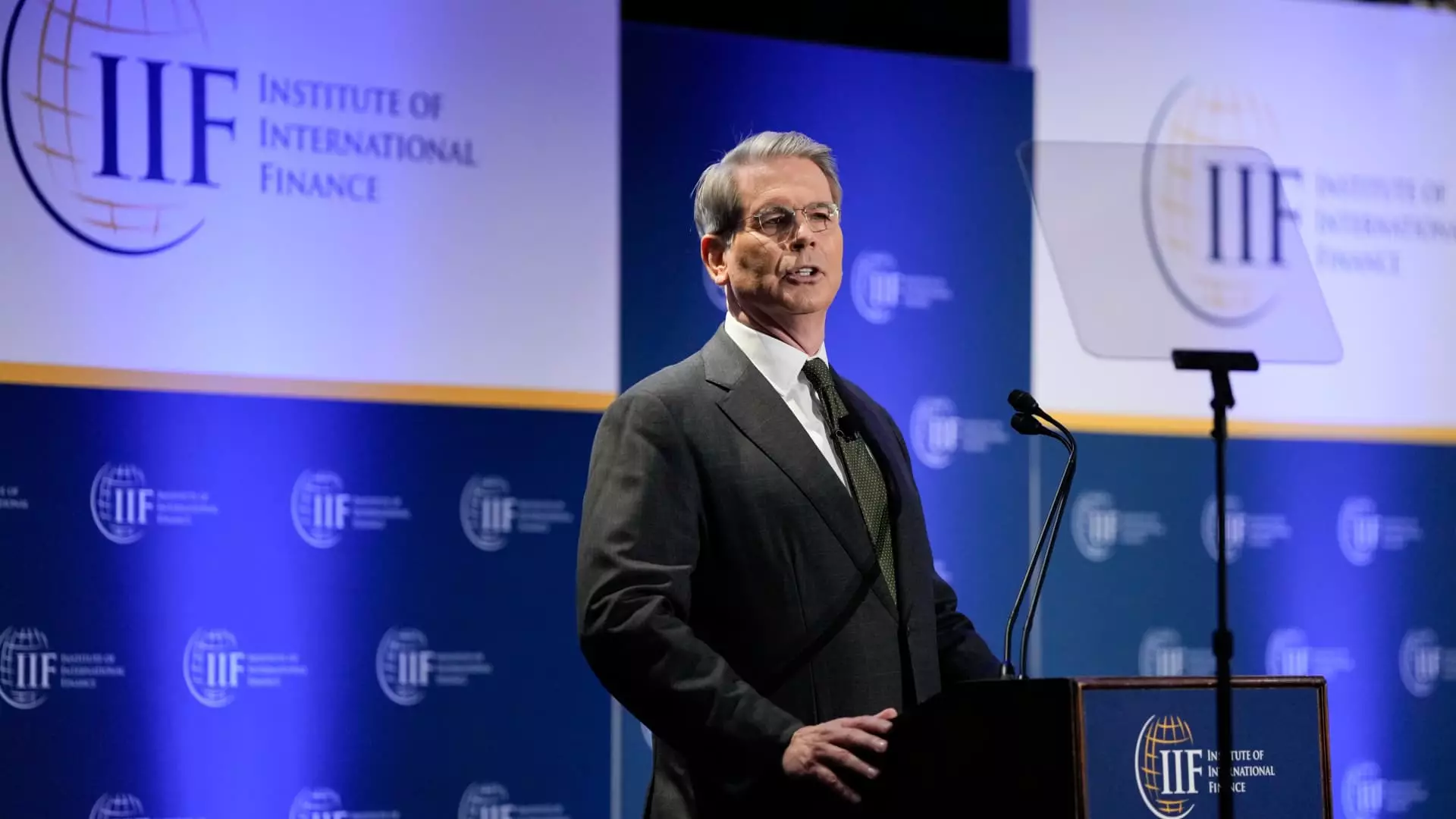In a world where international relations are as complex as they are crucial, the recent commentary from Treasury Secretary Scott Bessent has sparked considerable debate. Bessent’s assertion that “there is an opportunity for a big deal here” concerning U.S.-China trade positions him at a pivotal crossroads of economic diplomacy. While he highlights the need for America and China to work together for mutual rebalancing, it is essential to scrutinize whether such optimism is grounded in reality or merely a feeble hope in the face of daunting global challenges. From tariffs to the reforms of major financial institutions, the landscape is ripe for transformation, yet the urgency and commitments must match our aspirations.
The Mirage of Rebalancing
When Bessent envisions a “beautiful rebalancing,” he might be glossing over the potent realities that have complicated U.S.-China relations. The imposition of staggering tariffs, as high as 145%, presents no small barrier to achieving equitable trade terms. Even the prospect of reducing these tariffs to a mere 50% or 65%—while potentially a step forward—still reflects an unwillingness to genuinely engage in dialogue. The trading fabric between these two economic giants is frayed, and a superficial trimming of tariffs may not yield the reinvigorated trade landscape that Bessent speaks of. Instead, we might find ourselves navigating a precarious pathway toward further confrontations rather than constructive cooperation.
A Call for Institutional Reform
Bessent’s advocacy for reforming the World Bank and International Monetary Fund (IMF) highlights a critical point: these institutions need to evolve to meet the needs of the modern economic landscape. His idea that “mission creep has knocked these institutions off course” manifests a profound observation that their initial mandates do not align with the current global economic realities. It is disheartening to think that the very framework designed to foster global economic stability may be misaligned with its core purpose. Countries like China—whose economic prowess stands starkly opposed to developing nations—should not benefit from continued funding meant for those genuinely in need.
These organizations must shift towards more robust standards before extending support to nations that have outgrown their status. Treating the world’s second-largest economy as a “developing country” is not just an oversight; it’s a farce that undermines the very economic principles upon which these institutions were built. Embracing a forward-thinking position will allow countries to thrive independently, relying less on international aid and more on sustainable, private-sector-driven growth.
American Manufacturing at a Crossroads
Bessent’s indictment of foreign policy contributing to the erosion of America’s manufacturing sector strikes a poignant chord in an economic environment that many feel has lost its grounding. His claim that “intentional policy choices by other countries have hollowed out America’s manufacturing sector” rings true, but it isn’t the complete picture. Historically, U.S. policymakers have also failed to address internal inefficiencies and have neglected to invest in our workforce’s adaptability. While the Trump administration’s aggressive tariff strategy aims to rectify these imbalances, it raises questions about the long-term sustainability of such measures. Without converging domestic innovation with international cooperation, we may find ourselves perpetuating a cycle of punitive tariffs rather than fostering a thriving economy.
The Risk of Escalating Isolationism
Bessent’s remarks touch upon an unsettling but vital issue: the perils associated with isolationist policies. While America must protect its economic interests, retreating into a bubble of protectionism stifles growth for everyone involved, including American consumers. The notion that such approaches will yield a favorable outcome is misguided; the resultant retaliatory measures could deepen trade rifts. Instead of lauding short-term wins, we must strive for a balance that acknowledges the necessity of interconnected economies. The potential for something “worse than a recession,” as articulated by Ray Dalio, highlights the fine line we walk teetering between aggressive tariff tactics and collaborative economic frameworks.
Positioned at this juncture, we must choose wisely. Are we willing to extend an olive branch, or will we remain tethered to an archaic mindset of trade war? The path toward a meaningful and sustainable economic future requires more than just grandiose ideas; it demands an unwavering commitment to balancing both opportunity and responsibility in an increasingly complex global arena.


Leave a Reply